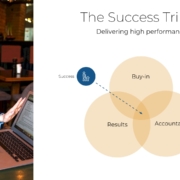Chris’ Sustainable Growth Mindset® 6.21.21
More Americans are quitting their jobs, according to WSJ, than at any time in the last two decades.
As COVID lifts, people’s interests are shifting from job security to professional fulfillment. We’re seeing the beginning of a massive employee turnover wave. You can ride it successfully to gain new talent or get pulled under and lose some of your best employees. How well are you positioned?
On the eve of the Gettysburg battle, Col. Joshua Chamberlain was told to watch over 120 disgruntled soldiers accused of desertion. Chamberlain’s own force was around 300, and every soldier devoted to guarding the group reduced the number of rifles he could put into the line.
Chamberlain won their trust and gained their buy-in (hint: he did not offer them better pay & benefits or threaten them). 117 of the 120 agreed to fight in Chamberlain’s ranks. The added rifles enabled Chamberlain’s unit to stand their ground at Little Round Top, counterattack, and win. They saved the Union Army.
The ABCs — Accountability, Buy-in, and Clarity — turned the tide. How well are the ABCs working in your organization?
We’ll discuss practical steps to get the ABCs right on June 30th at 10:30 am U.S. Central in a live zoom session (Register here https://lnkd.in/d3hWGNy).
Register here or use this address: https://strategic-leaders-academy.teachable.com/p/taking-your-business-to-new-heights-gettysburg
BREAKTHROUGH OPPORTUNITIES
The next FOCUSED program begins the first week of August. This 8-week group program is for principled leaders who want to grow their businesses in the right ways at the right pace with the right team.
Click here to see if the program is a good fit for you.
This program’s clarity and focus resulted in more high-payoff work that we love and less wasted time and energy. We expect 33% growth to reach $100k in monthly revenues and expand from there.
Matthew Hargrove and Barry Lingelbach, Black-Grey-Gold Consulting





